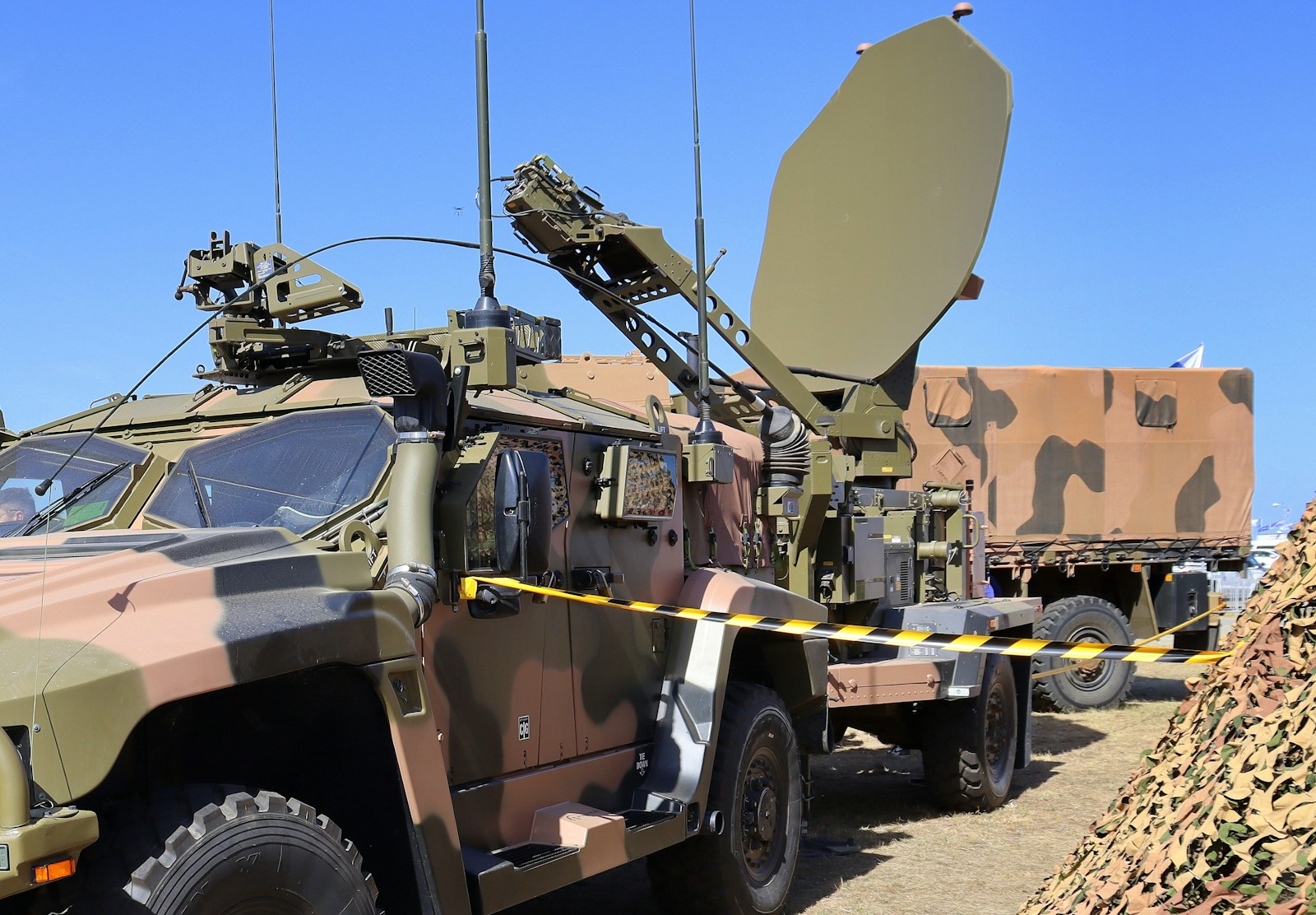The Israel Defense Forces (IDF) stand as a unique amalgamation of advanced technology, rigorous training, and innovative strategy, shaped profoundly by Israel’s geopolitical context. This article provides a detailed examination of the IDF’s multifaceted strengths, exploring its operational capabilities, technological innovations, strategic doctrines, and the sociopolitical factors influencing its activities. The IDF’s impressive reputation is not accidental; it is the result of decades of strategic planning, adapting to new challenges, and leveraging cutting-edge technology. Let’s delve deeper into what makes the IDF one of the most formidable military forces globally.
Historical Context and Organizational Structure
Founded in 1948, shortly after the establishment of the State of Israel, the IDF was created from the merger of various paramilitary organizations. It has since evolved into a highly integrated force with mandatory conscription laws that ensure broad national participation and support. This compulsory service has fostered a sense of unity and readiness, as nearly every Israeli citizen has a personal connection to the IDF, either through direct service or family involvement.
Branches of the IDF
- Ground Forces: Composed of multiple corps, including infantry, armor, artillery, and engineering, providing the backbone of Israel’s conventional deterrent. Each corps has specialized units with unique capabilities, such as the Givati Brigade, known for its expertise in urban warfare. The armor corps, equipped with the Merkava tank, demonstrates Israel’s domestic innovation in military hardware.
- Air Force (IAF): Renowned for its aerial supremacy, precision strikes, and intelligence capabilities. The IAF’s ability to conduct simultaneous operations across different theatres is a testament to its sophisticated command and control systems. The F-35I Adir, a variant of the F-35 Lightning II tailored for Israel, symbolizes the cutting-edge technology incorporated into the IAF’s fleet.
- Navy: Though smaller, it plays a crucial role in securing Israel’s maritime interests and borders, equipped with advanced missile boats and submarines. The INS Dolphin-class submarines, for example, are a strategic asset capable of extended operations in the Mediterranean. These submarines enhance deterrence, providing second-strike capabilities crucial for national security.
Technological Edge
Israel’s qualitative military edge is significantly supported by its domestic defense industry, which collaborates closely with the IDF. This synergy has produced some of the world’s most advanced military systems, ensuring that the IDF remains at the forefront of military technology.
Cyber Defense
The IDF’s cyber units are among the most advanced, focusing on both defense and offensive capabilities in a domain that is increasingly critical in modern warfare. Units like Unit 8200 are renowned for their expertise in intelligence gathering and cyber warfare, contributing significantly to Israel’s national security. Cyber operations now form a central component of national defense strategies, with cyber drills and exercises regularly conducted to simulate potential threats.
Missile Defense Systems
The Iron Dome, David’s Sling, and Arrow systems provide layered defense against a spectrum of threats from artillery shells to ballistic missiles. The Iron Dome, in particular, has a remarkable interception rate, saving countless lives by neutralizing threats in real-time. For instance, during conflicts, the Iron Dome intercepted over 90% of targeted rockets, showcasing its effectiveness. This system’s integration with other defense layers ensures comprehensive protection against aerial threats.
Unmanned Systems
Israel is a pioneer in the use of UAVs for surveillance, targeting, and execution of precision strikes, and is exploring autonomous battlefield robots. UAVs like the Hermes 900 are equipped with advanced sensors and can operate in a variety of environments, providing the IDF with unmatched aerial reconnaissance capabilities. The use of UAVs extends to humanitarian missions as well, such as search and rescue operations, demonstrating their versatility.
Strategic Doctrines
The IDF’s military strategy has been shaped by the necessity to manage multiple threats on various fronts simultaneously. Israel’s geostrategic position requires a proactive approach to defense, often necessitating rapid response to emerging threats.
Preemptive and Preventive Strikes
The IDF has historically adopted preemptive strikes to neutralize threats before they materialize into direct attacks on Israeli soil. For instance, the 1981 strike on Iraq’s Osirak nuclear reactor demonstrated Israel’s commitment to preemptive action to ensure national security. This strategy continues to inform IDF operations, with careful intelligence assessments guiding decisions.
Intelligence Dominance
Emphasis on intelligence has allowed Israel to counteract threats preemptively, with the IDF investing heavily in both human intelligence (HUMINT) and signals intelligence (SIGINT). The ability to gather and analyze intelligence swiftly ensures that the IDF can make informed strategic decisions. Intelligence units frequently collaborate with international partners, sharing insights that contribute to global security efforts.
Hybrid Warfare
In addition to conventional threats, the IDF increasingly focuses on hybrid warfare tactics, facing non-state actors like Hezbollah and Hamas that employ guerrilla and terrorist tactics. Adapting to this form of warfare requires flexibility and innovation, areas where the IDF excels. The development of specialized units trained for asymmetric warfare highlights the IDF’s commitment to countering diverse threats.
Training and Resilience
Training and preparedness are critical pillars of the IDF’s effectiveness, characterized by a culture of continuous improvement and adaptation.
Universal Conscription and Reserves System
This system ensures a high level of participation from the populace, providing a large reservoir of trained individuals who can be mobilized quickly. The reserve system is a critical component of the IDF’s strategy, allowing for rapid scaling of forces in times of crisis. Reservists undergo regular training to maintain readiness, ensuring a seamless transition to active duty when required.
Advanced Training Regimens
IDF training programs are renowned for their intensity and effectiveness, covering advanced combat tactics, counter-terrorism operations, and cyber warfare. Training exercises often simulate real-world scenarios, ensuring that soldiers are well-prepared for the complexities of modern warfare. The emphasis on leadership development within these programs ensures that junior officers are equipped to make critical decisions under pressure.
Continual Adaptation
The IDF frequently updates its training protocols based on lessons learned from operations and evolving threats. This approach ensures that personnel are equipped with the latest skills and techniques needed to address new challenges. Feedback loops from field operations to training centers facilitate rapid improvements in tactics and strategies.
Challenges and Controversies
Despite its strengths, the IDF faces significant challenges and controversies that impact its operational and strategic environment.
Asymmetric Warfare and Urban Conflicts
Engagements in densely populated urban areas pose complex ethical and tactical challenges. The IDF must balance military objectives with minimizing civilian casualties, often under intense international scrutiny. Techniques such as precision-guided munitions and real-time intelligence aim to reduce collateral damage while achieving strategic goals.
International Scrutiny and Law of War
IDF operations are closely watched globally, often attracting significant international criticism, particularly regarding civilian casualties and humanitarian impacts. Navigating these challenges requires diplomatic skill and adherence to international law. The IDF invests in legal training for its officers to ensure compliance with international norms, reflecting a commitment to lawful conduct in operations.
Economic and Demographic Constraints
High defense spending and the demands of continual military readiness place substantial burdens on Israel’s economy and workforce. Balancing these demands with other national priorities is an ongoing challenge for Israeli policymakers. Efforts to streamline procurement processes and invest in dual-use technologies that benefit both civilian and military sectors are part of the broader strategy to manage these constraints.
Future Outlook
Looking forward, the IDF is likely to continue evolving in response to both external threats and internal political dynamics. The IDF’s future development will focus on maintaining its technological edge and strategic flexibility.
Technological Innovation
Continued investment in new technologies like artificial intelligence, robotics, and next-generation missile defense systems is crucial. The integration of AI in decision-making processes and autonomous systems will likely play a significant role in future military operations. Research and development partnerships with tech companies and academic institutions are fostering innovation across all branches of the IDF.
Alliances and Diplomacy
Strengthening international alliances and expanding new diplomatic relations, particularly with countries in the Middle East following the Abraham Accords, is a strategic priority. These alliances can provide critical support and enhance Israel’s security posture. Joint military exercises and intelligence-sharing agreements with allied nations are practical examples of these diplomatic efforts.
Comprehensive Defense Strategies
Integrating all dimensions of warfare — including space and cyber — into a cohesive national defense strategy is essential. The IDF’s ability to operate across multiple domains will be a key factor in maintaining its strategic advantage. The establishment of a dedicated space unit within the IDF underscores the importance of this domain in future conflict scenarios.
The Israel Defense Forces remain a formidable military force, characterized by a unique blend of technological superiority, strategic innovation, and comprehensive national involvement in defense. As regional dynamics evolve and new threats emerge, the IDF’s adaptability, technological advancements, and strategic foresight will continue to be tested. The continuous modernization of its capabilities and the enhancement of its operational doctrines are essential for maintaining security and stability in an increasingly complex international arena. The IDF’s ongoing commitment to excellence ensures that it will remain a critical player in regional and global security.




